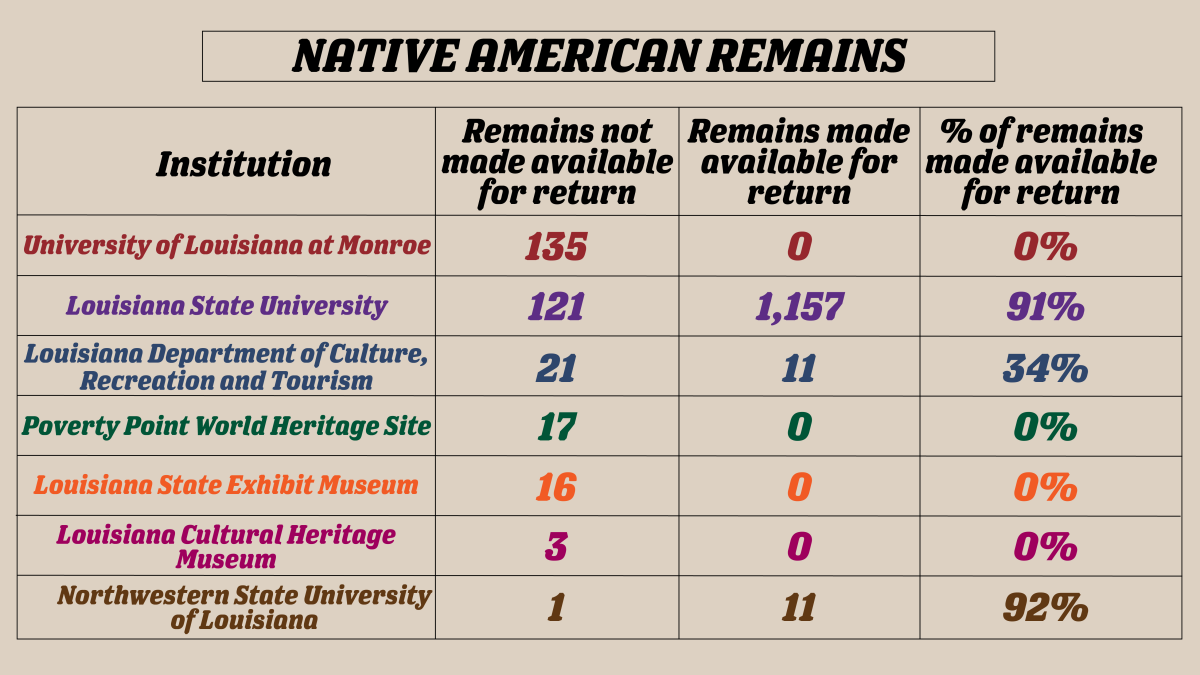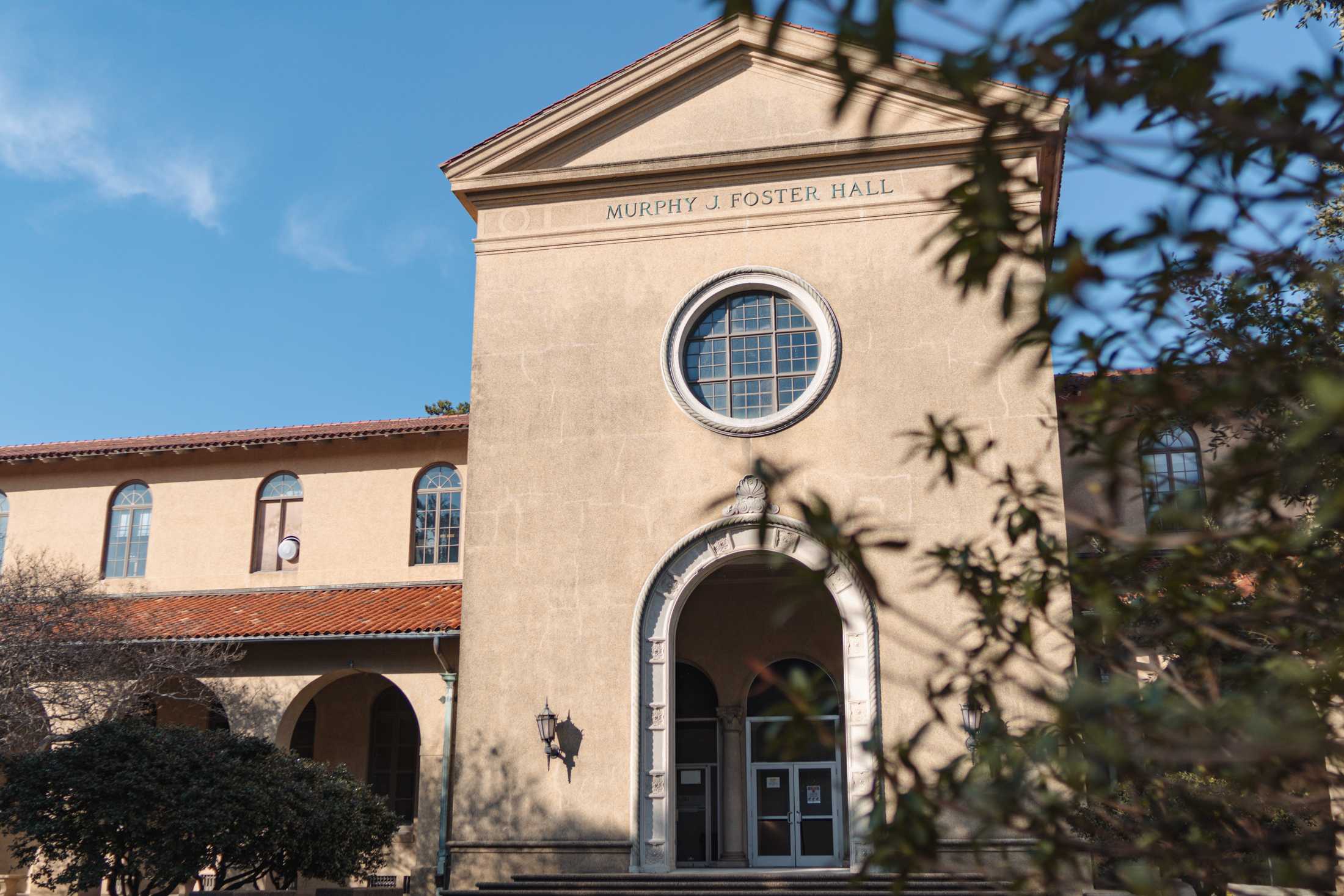LSU’s Museum of Natural Science plans to make 121 Native American skeletal remains available for return to various tribes by the end of the year, according to Rebecca Saunders, curator of anthropology at the museum.
A 1990 law requires U.S. institutions to make Native American, Native Alaskan and Native Hawaiin human remains available for return to tribes. However, over 100,000 remains are still held by museums, universities and federal agencies across the U.S., according to ProPublica.
As required by the Native American Graves Protection Repatriation Act, LSU has reported holding over 1,200 Native American remains, making it by far the largest collector in Louisiana.
The university has made available for return 91% of them, leaving 121 that still need to be processed, according to Saunders and data from ProPublica. The data also shows that the vast majority of remains made available by Louisiana institutions were made available to the Chitimacha Tribe of Louisiana.
Saunder said most of the remains that still need to be processed are fragile bone fragments.
Under NAGPRA, when an institution establishes a connection between remains and tribes, it must publish a list of tribes eligible to claim the remains. Once a tribe makes a claim, physical transfer can occur, according to ProPublica.
“To date, the LSUMNS has made available for return 91% of our collection of Native American skeletal remains and will have the remaining 9% done by the end of the year,” Saunders said. “The Museum is in compliance with NAGPRA regulations.”
LSU is by far the largest collector of remains in the state, accounting for 76% of all remains reported to the government, data from ProPublica shows.
Other Louisiana institutions that haven’t made remains available for return include the University of Louisiana at Monroe, which has returned none of the 135 remains in its collection.
The Louisiana Department of Culture, Recreation and Tourism, Poverty Point World Heritage Site and Louisiana State Exhibit Museum, among others, also hold remains that haven’t been made available for return, according to ProPublica.
The remains that still need to be returned by LSU were taken from the following parishes:
- Lafourche Parish
- St. Charles Parish
- Iberville Parish
- Allen Parish
- Rapides Parish
- Tensas Parish
- Richland Parish
A small number of remains were also taken from Mississippi.
The ProPublica data is part of a larger series launched Wednesday examining how various U.S. institutions have failed to return 110,000 remains.
As the United States expanded into the West throughout the 1800s and pushed many Native Americans from their land, museums and the federal government looted Indigenous remains and cultural items from homes, graves and places of worship, according to ProPublica.





